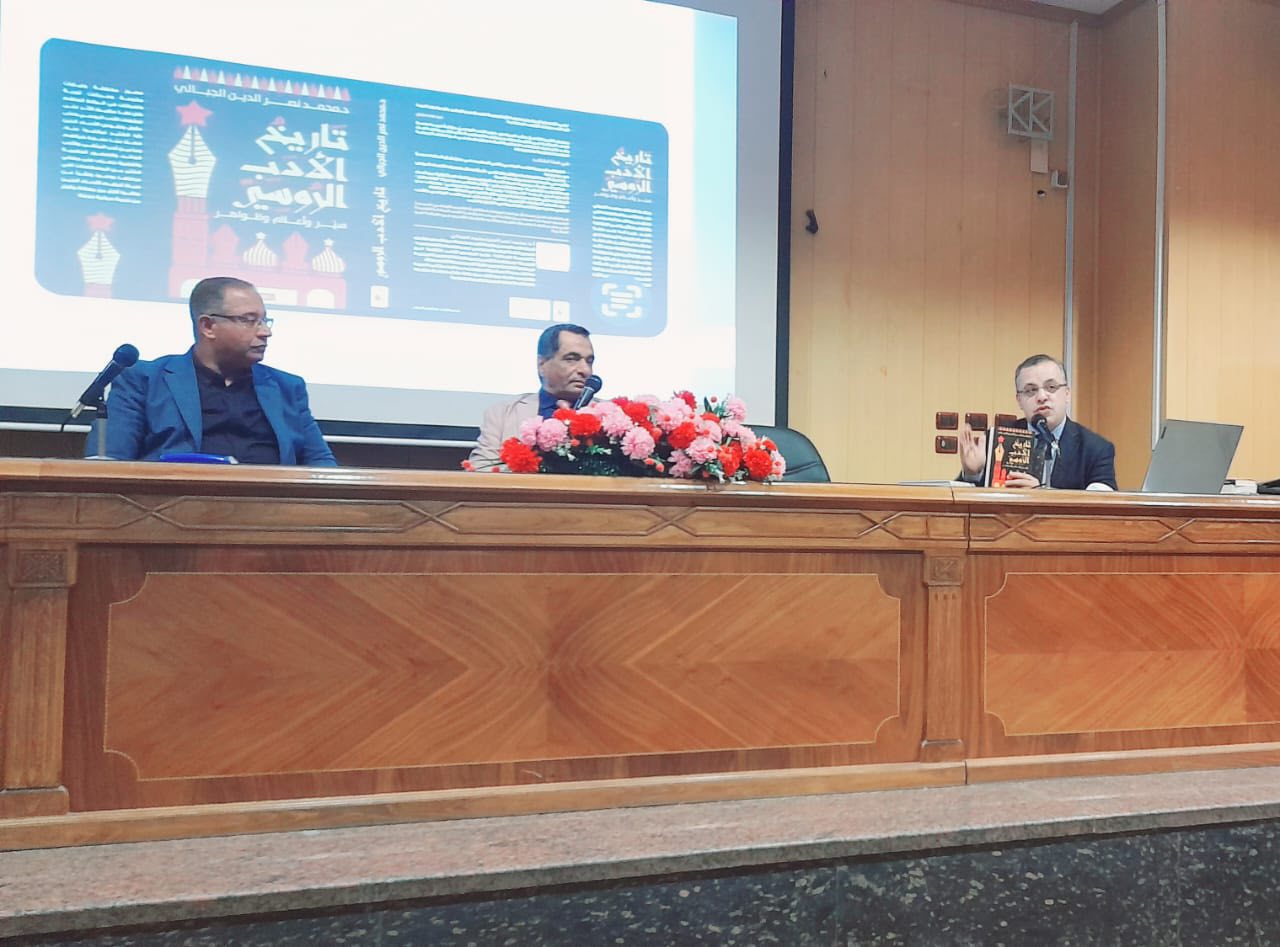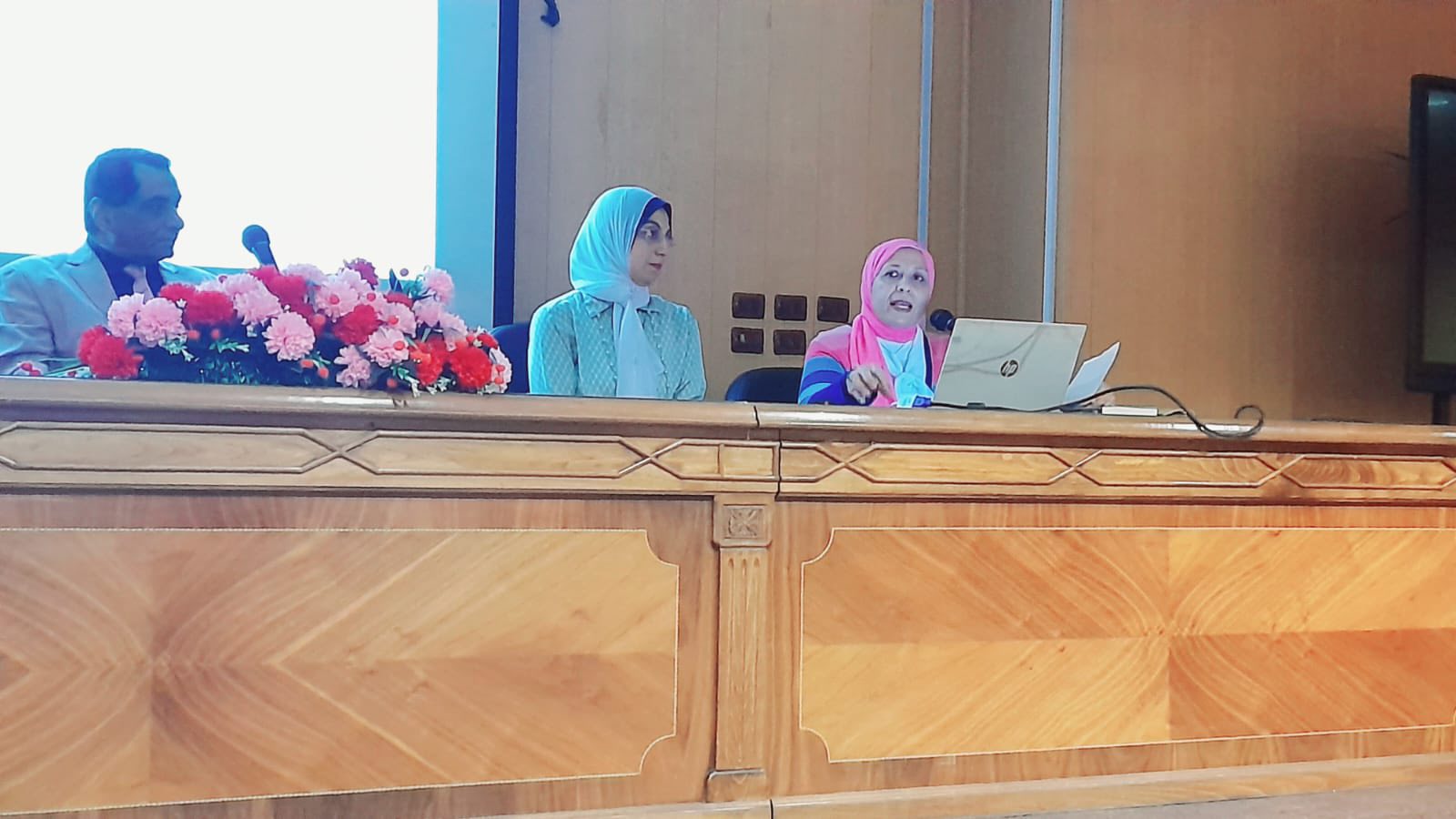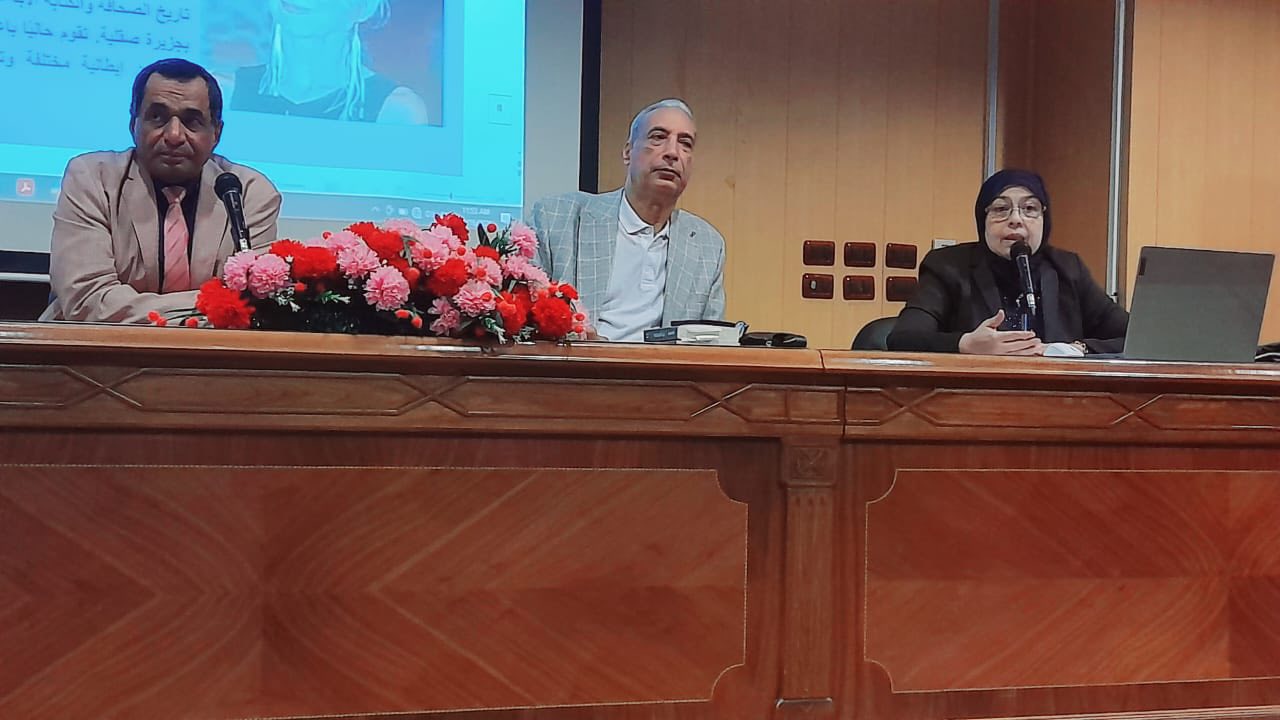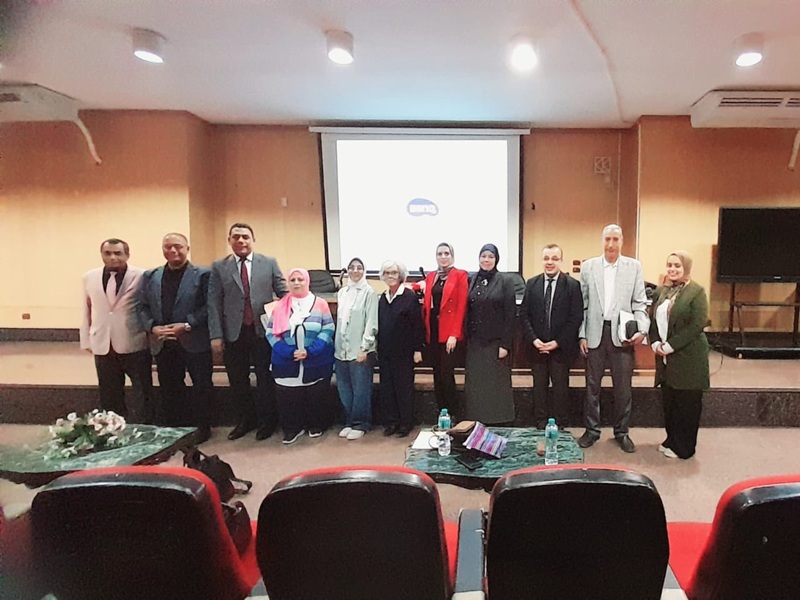“The Latest Publications of Al-Alsun Translators” … The First Seminar of the Cultural Relations Committee at the Faculty of Al-Alsun
The Cultural Relations Committee of the Graduate Studies Sector at the Faculty of Al-Alsun organized its first seminar titled “The Latest Publications of Al-Alsun Translators,” under the patronage of Prof. Mohamed Diaa Zain El-Abedeen, President of the University; Prof. Amany Osama Kamel, Vice President for Graduate Studies and Research; Prof. Youmna Safwat, Acting Dean of the Faculty; and Prof. Marwa Mostafa, Secretary of the Faculty’s Cultural Relations Committee.
The seminar hosted several of the faculty’s prominent professors in the field of translation to and from Arabic from various language departments, including French, Italian, Russian, Czech, Chinese, and German, and witnessed wide attendance from faculty members, teaching assistants, and students.
The seminar began with a speech by Dr. Assem El-Omari, Lecturer in the German Language Department, highlighting the importance of translation and the role of Al-Alsun translators in enriching the translation movement.
French Language
Prof. Dalia El-Toukhy, Professor in the French Department, presented her 12th publication, covering religious, medical, political, and economic translations. She highlighted her latest work, The History of the Children of Israel, co-translated with Prof. Rabab Hamdy. This four-volume encyclopedia, authored by Ernest Renan, exposes the falsehoods upon which the Israelites constructed their history. Prof. Rabab Hamdy, Assistant Professor of French, discussed her translation of the second book in the first volume, which examines the transition from tribal systems to organized political and religious structures. Both translators concluded by noting the challenges faced, including the author’s ironic philosophical style, documentation of place names, biblical references, and extensive footnotes.
 |
 |
 |
||
Italian Language
Prof. Fawzy Issa, Assistant Professor of Italian, presented two recent translations: the scientific work Without Borders: Amazing Stories of Migratory Animals, focusing on bird and animal migration, and the historical literary work Army of Lost Rivers, recounting the author’s experiences in World War I and emphasizing the cyclical nature of history. Prof. Marwa Tantawi presented her latest translation, the novel Sorry for This Dust by Elvira Seminara, discussing the complexities of translating literary texts, especially capturing characters’ inner emotions and the author’s satirical humor, and her use of cultural adaptation, equivalence, and structural adjustments.
Czech Language
Prof. Amr Shattouri, Head of the Czech Department, discussed four recent novels: Spirit Chaser (crime literature), The Last Forgiveness (nuclear reactor construction and village displacement), At My Grandmother’s House (intergenerational social relationships), and Life is Wonderful (autobiographical literature). He emphasized the importance of institutional support for translation, noting backing from the Czech Ministries of Culture and Foreign Affairs.
Russian Language
Prof. Mohamed Nasr El-Din El-Gebaly, Professor of Russian and former Cultural Counselor in Moscow, highlighted that translation is a cultural mediator, with increasing focus on the translator. His latest works include eight publications over the past two years, such as One Hundred Poems about Moscow, Abdullah Qadri’s novel The Good Old Days (Uzbek literature), the poetry collection Shadow of My Mother (Chechen literature), The Russian Empire, the Arabian Peninsula, and the Gulf (co-authored), and Egyptian Literature in the Mirror of Azerbaijani Orientalism. He also authored History of Russian Literature, presenting Russian literary phenomena in Arabic, and upcoming works include translations on Russian Muslim social thought and the drama Tragedy of Consciousness.
Chinese Language
Prof. Hassanein Fahmy Hussein, Head of the Chinese Department, discussed challenges in translating historical works, emphasizing accuracy in place names, evolving country names, judgments, and conflicting information. His recent translations include A Brief History of Chinese Diplomacy, Arabs in Chinese Heritage Texts, and the novel Lost City by prominent Chinese author Youhua.
German Language
The session concluded with Prof. Samar Monir, Assistant Professor of German, presenting her latest translation, the Austrian novel Killing Men. Her doctoral research on women’s literature inspired her interest in translating this genre. The novel, written by a female journalist, addresses rising crime rates and violence against women in Austria. She highlighted translation challenges, including the work’s bold themes, graphic violence, and culturally specific language.


.svg)

